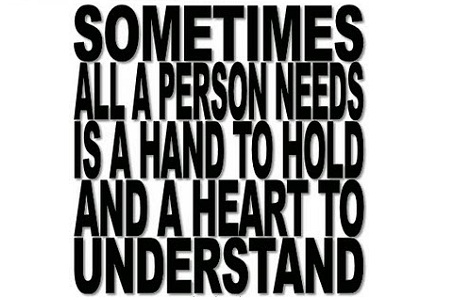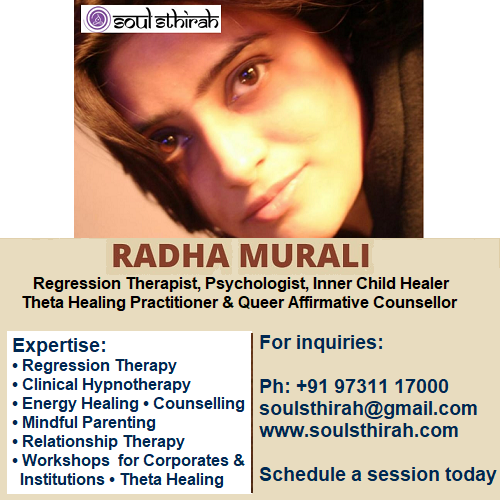Alternative Therapies
- Alternative Medicine
- Access Bars
- Acupressure
- Acupuncture
- Angel Healing
- Ayurveda
- Bach Flower Remedies
- Breathwork
- Cosmetic Acupuncture
- Crystal Healing
- Cupping Therapy
- Emotional Freedom Technique (EFT)
- Ergonomics
- Face Reading
- Fengshui
- Geopathic Stress
- Graphology
- Heal Your Life
- Holistic Solutions
- Holy Fire Reiki
- Homeopathy
- Hypnotherapy
- Jikiden Reiki
- Lama Fera
- Manual Therapy
- Meditation
- Motivational Counseling
- Mudra Healing
- Nakshatra Energies
- Naturopathy
- Neuro Linguistic Programming (NLP)
- Panchakarma (Ayurveda)
- Panchkarma Holistic Healing - Mind Control
- Past Life Regression
- Physiotherapy
- Pranic Healing
- Pyramids
- Reiki
- Rudraksh
- Silva Mind Control Method
- Sujok therapy
- Switchwords
- Symphony of Possibilities
- Tarot
- Unani Medicine
- Yoga
Diseases & Conditions
- Acne & Pimples
- Allergies
- Arthritis
- Asthma
- Behavioural Disorders
- Dandruff
- Diabetes
- Emotional Problems
- Gallstones
- Gastritis
- Hairloss
- Heart Diseases
- Hormonal Problems
- Hypertension
- Immune Disorders
- Infections
- Infertility
- Jaundice
- Kidney Disorders
- Liver Disorders
- Menstrual Disorders
- Migraine
- Neck & Back Pain
- Obesity
- Osteoporosis
- Peptic Ulcer
- Prevention
- Prostate Problems
- Psoriasis
- Sexual Dysfunctions
- Sinusitis
- Sleep Disorders
- Skin Diseases
- Stress
- Thyroid Disorders
- Ulcerative Colitis
- Urinary Infections
General Wellness
Ms. Jaya Nair

Jaya is a certified counsellor, Energy Healing Practitioner, Hypno and Regression therapist, Access Consciousness Practitioner, Redikall Healing Trainer & Practitioner and Family Constellation practitioner and also practices other modalities like...

Ms. Radha Murali

Radha practices wide-ranging techniques which include Psychotherapeutic Intervention, Counseling, Inner Child Work, Transpersonal Regression Therapy, Clinical Hypnotherapy, Ego State Therapy, Age Regression, Mindfulness, Emotional Freedom Technique (EFT), Rhythmic Relaxation Technique (RRT), Energy Work, Chakra healing and Past Life Therapy


Ms. Priya Alti
If you are going through something or not going, doesn't matter, choose 'CONSCIOUSNESS'. If you have pain, dis-ease, stress, money issues, blocks at work, relationships strains, and anything and everything that is holding you from thriving in life.


Ms. Ritu Bahri
Ritu's unique integrative Energy Healing modality is drawn from a spectrum of healing modalities, including Reiki, Karuna Reiki, Aura scanning, Chakra balancing, Embodying the living principles of self-transformational human evolution.

Ms. Archana Kabilan

Archana Kabilan, a Bach Foundation Registered Practitioner (BFRP) (UK), offers a blend of Bach flower services in support of stress management by reducing stress and promoting relaxation to enhance wellness.

Dr. Geettanjali V. Saxenaa.

Past life Regression Trainer, Family Constellation Trainer, Theta Healing Trainer, Inner Child Work, Angel Therapist, Reiki healer, Hypnotherapy, Crystal Healing, Graphology, Tarot card reader & Astrologer


Ms. Radhika Chopra
Radhika Chopra - Tarot reading, Graphology, Pythagoras system of numerology, Releasing of toxic emotions and events from energy field, Metaphor therapy, Access bars, Access body processes and Energy transformation of bodies, health, and spaces, Facilitator conducting Bars, Body process, Energetic facelift classes and Right Voice for You Taster.

Cosmicx Healing Art - Ms. KripaJyoti Nisha Singla

KripaJyoti Nisha Singla (PGDBM) is a Spiritual master, Energy worker, Reiki Master, Theta Instructor, and a dedicated Artist who has been working in the field of healings, spirituality, counselling, relationship healing, family therapy and alternative medicine therapies from more than 12 years.


EMOTIONAL PROBLEMS
There are common effects or conditions that may occur following a traumatic event. Sometimes these responses can be delayed, for months or even years after the event. Often, people do not even initially associate their symptoms with the precipitating trauma. The following are symptoms that may result from a more commonplace, unresolved trauma, especially if there were earlier, overwhelming life experiences: Physical* Eating disturbances (more or less than usual)
* Sleep disturbances (more or less than usual)
* Sexual dysfunction
* Low energy
* Chronic, unexplained pain Emotional
* Depression, spontaneous crying, despair and hopelessness
* Anxiety
* Panic attacks
* Fearfulness
* Compulsive and obsessive behaviors
* Feeling out of control
* Irritability, angry and resentment
* Emotional numbness
* Withdrawal from normal routine and relationships Cognitive
* Memory lapses, especially about the trauma
* Difficulty making decisions
* Decreased ability to concentrate
* Feeling distracted
* ADHD symptoms
The following additional symptoms of emotional trauma are commonly associated with a severe precipitating event, such as a natural disaster, exposure to war, rape, assault, violent crime, major car or airplane crashes, or child abuse. Extreme symptoms can also occur as a delayed reaction to the traumatic event. Re-experiencing the Trauma
* intrusive thoughts
* flashbacks or nightmares
* sudden floods of emotions or images related to the traumatic event Emotional Numbing and Avoidance
* amnesia
* avoidance of situations that resemble the initial event
* detachment
* depression
* guilt feelings
* grief reactions
* an altered sense of time Increased Arousal
* hyper-vigilance, jumpiness, an extreme sense of being "on guard"
* overreactions, including sudden unprovoked anger
* general anxiety
* insomnia
* obsessions with death
What are the possible effects of emotional trauma?
Even when unrecognized, emotional trauma can create lasting difficulties in an individual's life. One way to determine whether an emotional or psychological trauma has occurred, perhaps even early in life before language or conscious awareness were in place, is to look at the kinds of recurring problems one might be experiencing. These can serve as clues to an earlier situation that caused a dysregulation in the structure or function of the brain.
Common personal and behavioral effects of emotional trauma:
* substance abuse
* compulsive behavior patterns
* self-destructive and impulsive behavior
* uncontrollable reactive thoughts
* inability to make healthy professional or lifestyle choices
* dissociative symptoms ("splitting off" parts of the self)
* feelings of ineffectiveness, shame, despair, hopelessness
* feeling permanently damaged
* a loss of previously sustained beliefs
Common effects of emotional trauma on interpersonal relationships:
* inability to maintain close relationships or choose appropriate friends and mates
* sexual problems
* hostility
* arguments with family members, employers or co-workers
* social withdrawal
* feeling constantly threatened
What if symptoms don't go away, or appear at a later time?
Over time, even without professional treatment, symptoms of an emotional trauma generally subside, and normal daily functioning gradually returns. However, even after time has passed, sometimes the symptoms don't go away. Or they may appear to be gone, but surface again in another stressful situation. When a person's daily life functioning or life choices continue to be affected, a post-traumatic stress disorder may be the problem, requiring professional assistance.
How is emotional trauma treated?
Traditional approaches to treating emotional trauma include talk therapies, Cognitive-Behavioral Therapy (CBT) - intentionally changing one's thoughts and actions - and systematic desensitization to reduce reactivity to a traumatic stressor. These approaches to healing trauma were developed without brain science information, and therefore have varying degrees of success.
Recent developments in the treatment of emotional trauma include new, effective forms of psychotherapy and somatic (body) therapies that were developed with new brain science information in mind. Although often intensely interpersonal, these therapies are also psychological and neurological in their focus and application. This group of therapies relies on innate instinctual resources, rather than medications, to bring about healing. They differ in some ways, but the one thing they have in common is combining talk therapy with a focus on the body. As with any therapy, but especially due to the intensity of the emotions involved, it is important to find a therapist with whom one feels trust and a strong bond.










